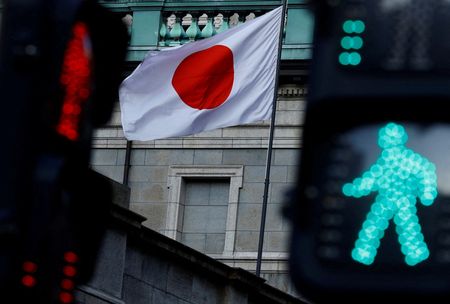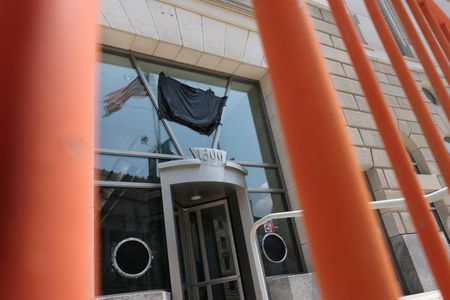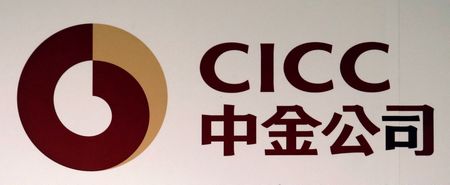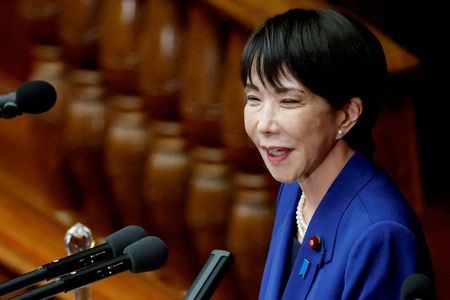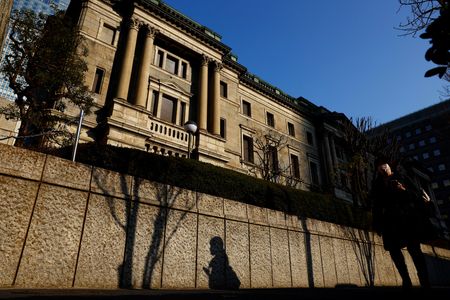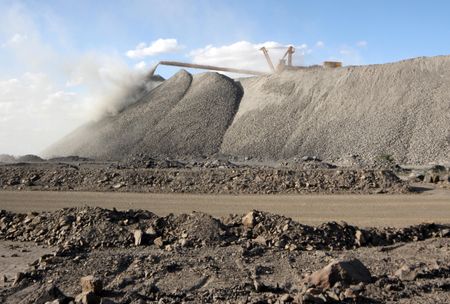By Leika Kihara
NIIGATA, Japan (Reuters) -The Bank of Japan must continue to normalise monetary policy by raising real interest rates to “a state of equilibrium” to avoid creating unintended distortions in the future, board member Junko Koeda said on Thursday.
The remarks suggest Koeda, an academic who joined the central bank’s board in March, will vote in favour of an interest rate increase if proposed by Governor Kazuo Ueda in the coming months.
Corporate profits remain high, the economy is resilient and prices have been “relatively strong,” Koeda said, adding that the recent surge in food prices could affect inflation expectations.
The output gap has been around 0%, while conditions in the job market have been tight due to labour shortages, she said.
“In this situation, the BOJ must continue to raise the policy interest rate and adjust the degree of monetary accommodation in accordance with improvement in economic activity and prices,” Koeda said in a speech.
Last year, the BOJ exited a decade-long, massive stimulus programme and raised interest rates twice – including in January. It has kept its policy rate steady at 0.5% since then, even as consumer inflation has remained above its 2% target for more than three years.
With real interest rates “clearly low” compared with other countries, the BOJ can keep stimulating consumption and investment even if it raises nominal rates slightly, she said.
“The BOJ needs to proceed with interest rate normalization, that is, to return real interest rates to a state of equilibrium, to avoid creating unintended distortions in the future,” Koeda said.
Ueda has said the BOJ will continue to raise interest rates if it is convinced that underlying inflation will stabilise around the 2% target.
Markets are closely watching BOJ policy signals as Prime Minister Sanae Takaichi has voiced displeasure over the idea of another rate rise in the near term, while urging the central bank to cooperate with government efforts to reflate the economy.
With prospects of prolonged low rates fuelling unwelcome yen declines, however, Finance Minister Satsuki Katayama said on Wednesday she had no objection to the BOJ’s moderate rate-hike path.
“I believe that underlying inflation is about 2%,” Koeda said. “But in order to achieve our price target, it is important to examine the extent to which underlying inflation has remained stable or been anchored.”
It is also important to scrutinise whether inflation expectations would be stable and look at factors that affect prices such as the strength of the economy, Koeda said.
While Ueda has said the BOJ needs more clarity on the outlook for next year’s wage negotiations, Koeda said she was also focusing on developments in Japan’s minimum wage, winter bonus payments and how increasing job mobility might affect pay.
The BOJ is scheduled to hold its next policy-setting meeting on December 18 and 19, followed by a meeting in January. Many market participants expect the central bank to raise rates to 0.75% either in December or January.
Two of the BOJ’s nine members unsuccessfully proposed a rate increase to 0.75% in September and October, in a sign of the bank’s increasing attention to inflationary pressure.
(Reporting by Leika Kihara; Editing by Muralikumar Anantharaman, Shri Navaratnam and Thomas Derpinghaus)

